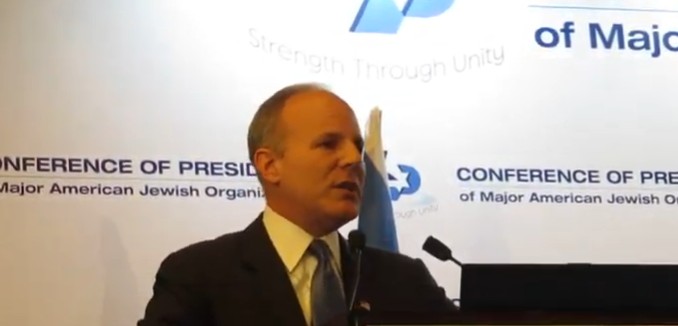In an address to American Jewish leaders gathered for a conference in Jerusalem on Thursday, the United States Special Envoy to Monitor and Combat Antisemitism said that he would work to end the “attempted distinction” between anti-Zionism and anti-Jewish hate, JNS reported.
Elan Carr, who was appointed to the role earlier this month after the post had been left vacant for two years since Donald Trump became president in 2016, said, “I will work to eradicate the attempted distinction between anti-Zionism and anti-Semitism.” Carr stressed, “There is no distinction.”
The rise in anti-Semitism, the envoy explained, cannot be attributed to a single country or political movement. Rather, he said, anti-Semitism is a global scourge that requires a global response. “This will be a full-court press. We are not going to be ignoring any part of the world or any ideology,” he vowed.
The envoy specified that “there is a greater rise in new anti-Semitism that clothes itself as anti-Zionism. The anti-Semitism of the European street, of the college campus and of those that have embraced the notion that the Jewish people don’t have a right to their homeland.”
The official continued: “There is a lot of good news, too. We have real allies in Europe and in some cases in the Muslim world who are passionate about this issue. They care about the future of the Jewish people.”
Carr, who was in Israel to meet with government officials and members of civil society, is a Jewish-American Army veteran and the grandson of Holocaust survivors. At the conference in Jerusalem, Carr declared that, “Anyone who attempts to deny the Jewish religion its basic faith tenets, its rights to a homeland is wading into anti-Semitism. And I will fight it.”
Last September, the House of Representatives passed the bipartisan “Special Envoy to Monitor and Combat Anti-Semitism Act of 2018,” which required the president to appoint an official to the role within 90 days of its passage and to put forward a nominee no more than 120 days after a vacancy.
[Photo: SharonAl613 / YouTube ]




